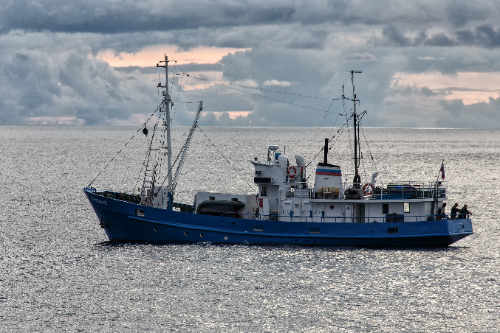– The factors necessitating the study are the growing importance of Arctic territories in the country's strategic development agenda and the persistence of problems in sustainable socio-economic development and population reproduction on the one hand, and a limited amount of official statistical and departmental information on socio-economic processes in these territories on the other hand, - explained Alexander Volkov.
The scientists will analyze statistical and sociological information on environmental pollution in the Arctic territories, as well as the ideas of businesses, authorities and citizens regarding their responsibility for environmental pollution and dealing with its consequences, and the nature conservation practices they employ.
– We plan to identify not only the factors driving the pro-environmental behavior of people, but also the prerequisites for efficient interactions between businesses, authorities and local residents on this matter. One of the distinctive features of the study is the level of detail of data collection and analysis at the municipal level. This is urged by the significant differences in the socio-economic characteristics of the Arctic territories - told Alexander Volkov.
The experts have already visited Naryan-Mar and the Zapolyarny District of the Nenets Autonomous District; the cities of Usinsk and Inta in the Komi Republic and the region's capital, Syktyvkar, as part of their communication with regional authorities.

Alexander Volkov interviews Olga Barabash, Deputy Head of the Inta Urban District Administration
– Based on the first observations, the character of environmental threats is significantly influenced by the sectoral affiliation and life cycle stage of the mainstay enterprises, infrastructural coverage of the territories and industrial and municipal waste management practices. There are locally specific practices of the mutual control between citizens and businesses, citizens and authorities, authorities and businesses in matters of environmental wellbeing. Public involvement in environmentally responsible practices varies among age and income groups, and depends on the respondent's gender and place of residence, and less so on their wealth, – the scientist commented.
In addition, the experts will study aspects of the social, economic and environmental capacity of the Arctic territories, people's access to health care, education, leisure and recreation, employment and reproduction of human capital, as well as the permissible human burden on natural ecosystems.
At the moment, the stage of collecting material in the Nenets Autonomous District is completed. Next in line are Arctic territories of the Komi Republic.
Based on the results of their work, the experts will prepare a series of scientific publications and analytical reports for regional and federal authorities.










